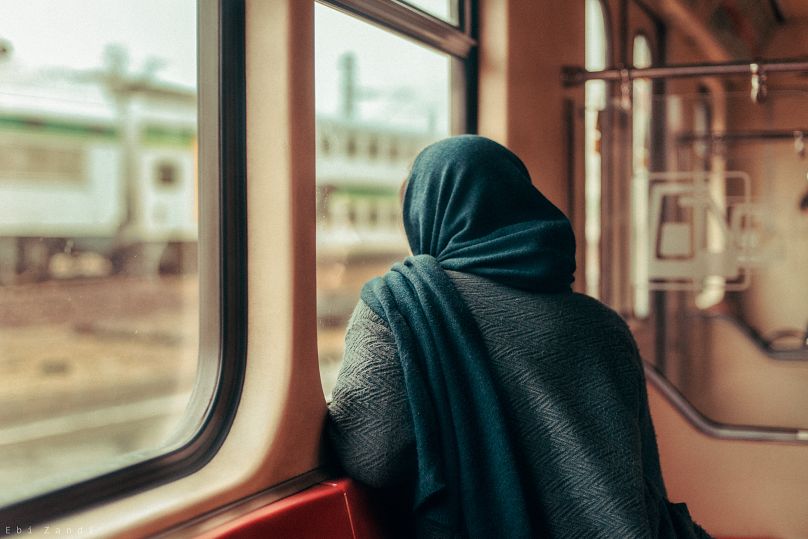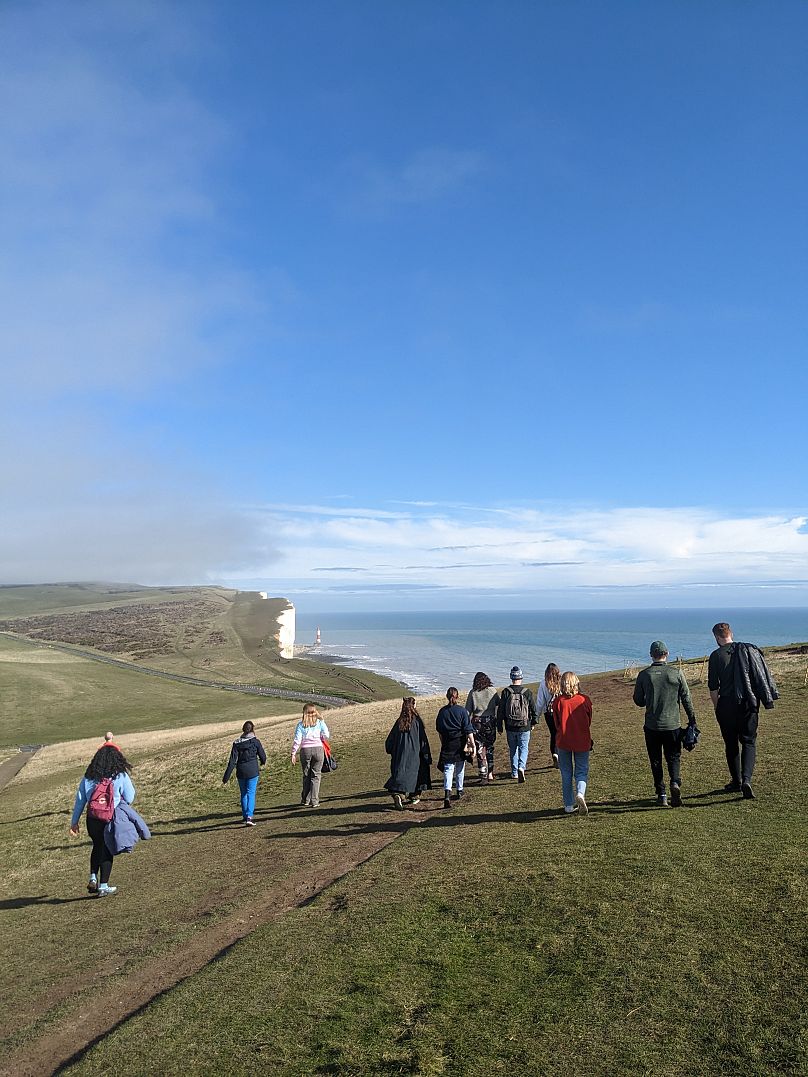Byway's bookings have grown by 450 per cent in the last year, as more and more people discover the joys of flight-free holidays.
A pioneering flight-free travel company has saved more than 1,000 trees worth of CO2 over the last year.
 ADVERTISEMENT
ADVERTISEMENT
 ADVERTISEMENT
ADVERTISEMENT
Wooing people with the charms of train travel who would otherwise have flown, UK-based start-up Byway managed to stop 170 tonnes of the greenhouse gas from being emitted.
On its third birthday, Byway’s latest impact report is full of such heartening figures for slow travel enthusiasts.
The company was founded at the start of the pandemic, an ironic time for a travel start-up to find its feet. But Byway has successfully harnessed the restless desire many of us felt during lockdown for more meaningful experiences on the other side.
“We want to be a shining example that inspires the industry to come and partner with us, compete with us, and dive head first into the slow travel movement,” says CEO and founder Cat Jones.
As well as preserving a small forest’s worth of carbon dioxide, the B-corp is making sure that its trips have a light touch on the destinations it travels through, not adding to overtourism woes.
Between April 2022 and March 2023, 87 per cent of nights on its journeys avoided hotspots, the report says - excluding first nights as the first train tends to depart from a major transport hub.
While 86 per cent of accommodation spend went to locally-owned businesses instead of international chain hotels.
Where do Byway trips go?
The last 12 months have seen the slow travel specialists spread their reach even further; opening new routes into the Czech Republic, Iceland, and an epic adventure to Morocco.
In total, Byway has launched trips to 22 new regions - steaming away from its mainstays of Italy, France and Switzerland.
This includes a 24-day trip to the spectacularly snowy and remote Lofoten Islands in Norway - “about as far North as we do regularly” says Cat, featuring boats and sleeper trains for the longest stretches.
Byway’s model is diametrically opposed to the jet-in, jet-out quick-as-you-can kind of holiday that air travel has normalised. Although you spend the most nights at your ‘final’ destination, its ethos is all about maximising the journey experience.
Rather than being whisked from train to train, Byway’s holiday planners build in multiple stopovers in cities along the way.
The company’s concierge team offers tips in an exclusive Whatsapp group. “Often [they] don’t need to do more than admire photos but having them there really helps,” says Cat.
Especially when dealing with the hiccups that come with intercontinental train travel, the service is a “lifeline for customers”, navigating everything from strikes to vegan eateries.
How can tech help build sustainable holidays?
At the other end of Byway’s budding workforce are the tech developers. They have built a pioneering platform: the world’s first dynamic packaging engine for flight-free slow travel.
On the surface, this ‘trip builder’ tool enables you to select where you want to go, what interests you most (be that arts and culture, nature or nightlife) and how much you want to spend - along with other details. Within seconds you have an inspiring itinerary in front of you.
Behind the scenes, the developers have cleverly “codified sustainability into the tech design” explains Cat.
It deprioritises chain hotels for example, and is programmed to minimise time spent in tourist hotspots in favour of lesser-known locations. (Though if you’re desperate for a night in Venice that will be arranged - far better as part of a flight-free adventure, by Byway’s reckoning).
Byway is also looking to prioritise locally run activities in its recommendations, and bump up local transport options - thereby supporting public infrastructure.
What’s next? Travelling into the climate action space
Like other sustainable travel companies, Byway has hitched its wagon to the progress of Europe’s train network.
There are plenty of new routes coming down the line - including in Portugal, which is notoriously slow overland - but trains still need to fully overtake planes as the cheapest, easiest option every time.
To that end, Cat says the company is stepping up its advocacy efforts this year. “It’s a quirk of the UK that rail is as expensive as it is compared to the European market,” she says of her pricey country, so Byway is likely to focus its campaigning efforts at home.
It is already partnering with others in the sustainable travel space - like Climate Perks, an initiative from UK climate charity Possible which encourages companies to give their employees more time off for greener travel.
And its ‘powered by Byway’ model sees the company team up with the likes of Intrepid; adding the train portion so customers don’t need to fly to their group adventure.
“Airlines are diluting climate activism with their greenwashed narratives on ‘carbon-offsetting’ and ‘guilt-free’ travel, making it more important than ever for businesses and governments to take urgent and informed action,” Byway states.
Who is slow travel for?
The mission to make slow travel mainstream includes everyone, adds Cat. So the company strives to create accessible versions of all its itineraries - even where that’s unprofitable, or involves some manual overriding of the API programming.
It’s also looking at layering in cheaper options like hostels, camping and glamping.
Currently, holidaymakers come from all walks of life - but typically those with some time to spare: honeymooners, over-50s marking an anniversary, solo travellers who can afford an exclusive cabin.
Cat says they’ve also noticed a trend of kids who are getting parents to offset their own holiday by travelling with Byway, since they can’t afford not to fly.
The numbers show a legion of new slow travel champions: 41 per cent of customers who travelled last year have already booked another trip or referred a friend who has. Byway’s bookings have grown by 450 per cent in the last 12 months.
‘Loving the journey’ goes for the company too, who recently took time away from the London office to celebrate their third birthday on the coast of Eastbourne - by train, of course.












